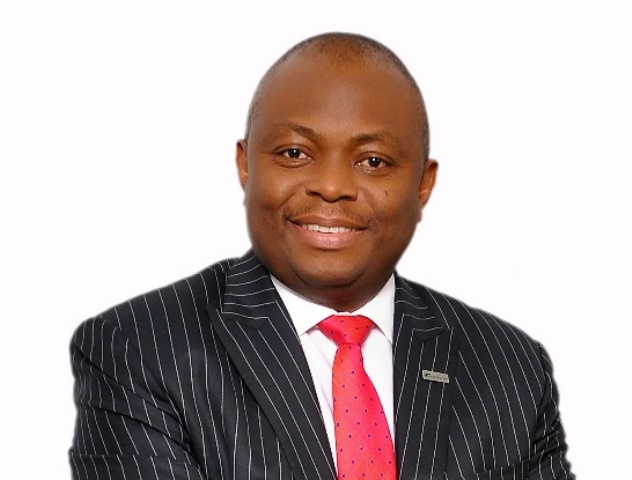BREAKING NEWS
Fidelity Bank Q3 gross earnings grow to N106.6bn

Fidelity Bank Plc, one of Nigeria’s most capitalized financial institutions has released its third quarter result for the period ended September 30, 2015 posting an increase of 11.0 per cent and 1.8 per cent in its gross earnings and profit respectively.
The Bank’s gross earnings grew from N96.0 billion in the nine month period to N106.6billion in the third quarter of 2015. Profit after Tax (PAT) went up by 1.8 per cent to N11.4 billion as against N11.2 billion made in the comparable period of last year. While total equity increased by 4.2 per cent to N180.3 billion from N173.1billion as at December 2014, operating income stood at N62.0 billion, a 9.7 per cent rise compared to N56.5 billion in the nine month period.
Commenting on the result, Managing Director and Chief Executive Officer, Fidelity Bank Plc, Nnamdi Okonkwo stated that business operations during the period under review were constrained by regulatory and economic pressures arising from currency devaluation concerns, tight monetary stance, and implementation of the Treasury Single Account (TSA).
This situation, Okonkwo explained, had culminated in negative earnings in the banking sector. He however, expressed great optimism in the new business model which the Bank adopted and which resulted in a year-on-year (y-o-y) growth in both fund and fee based income resulting in a 3 per cent growth in profitability.
“Despite these challenges we continued with the disciplined execution of our medium term strategy. Profit before Tax (PBT) increased to N13.8bn despite the decline in our total assets due to the TSA implementation.”
Interestingly, net interest income increased by 10.8 per cent y-o-y to N40.6 billion but declined by 4.8 per cent q-o-q due to the reduction in its earning assets. Okonkwo, however pointed out that the bank continued to increase yields on earning assets faster than growth in funding costs, which improved its NIM (Net Interest Margin) to 6.9 per cent in third quarter of 2015. This growth put the bank in pole position to attain its 2015 target of 7.0 per cent.
According to the Bank Chief, Net Fee Income increased by 7.7 per cent y-o-y to N21.4 billion but declined by 4.2 per cent quarter-on-quarter (q-o-q) due to lower FX (Foreign Exchange) Income on the back of trading restrictions in the market. Alluding to the impact of the Bank’s current retail strategy in driving revenues, Okonkwo stated: “Electronic banking income increased by 128.4 per cent y-o-y to N4.5 billion and 115.4 per cent q-o-q”, adding that this was driven essentially by the deployment of the Bank’s innovative online banking application, increased migration of customers to alternate electronic channels as well as a rise in international card transactions.
He explained that total expenses grew by 10.3 per cent y-o-y to N44.8 billion and 6.3 per cent q-o-q driven by cost lines like staff remuneration, regulatory costs (NDIC/AMCON) and branding/advertisement costs. Cost-Income Ratio declined to 71.6 per cent in 9M 2015 from 74.2 per cent in the 2014 FY as revenue growth outpaced the increase in operating cost. Net Loans, on the other hand, grew marginally by 1.1 per cent YTD to N547.7 billion but declined by 4.4 per cent q-o-q.
“This is as a result of customer pay-downs, amplified by the re-alignment of their respective business model and a cautious approach to asset creation in consonance with the weaker macro environment”, he said.
He noted that the Cost of Risk amounted to 1.0 percent while the Bank improved its coverage ratio. NPL Ratio remained within the Bank’s guidance at 3.7 percent. Total Deposits declined by 6.6 percent YTD to N765.8 billion and 3.9 percent q-o-q due to regulatory initiatives like the implementation of the TSA which impacted the Bank’s deposit base by about N75 billion during the quarter.
Despite all these challenges, the Bank Chief said that the Bank is committed to keeping its promise to its customers. In September, the bank unveiled its new corporate identity that portrays its positive personality with a view to positioning the brand in a highly competitive market. “Our new corporate identity”, Okonkwo said, “is inspired by our past with our eyes set on the future and always staying true to our vision. Our new identity comes with a renewed brand promise….”your aspiration may prove to be a tough job but someone’s got to do it”.





 Davido's Net Worth & Lifestyle
Davido's Net Worth & Lifestyle 
